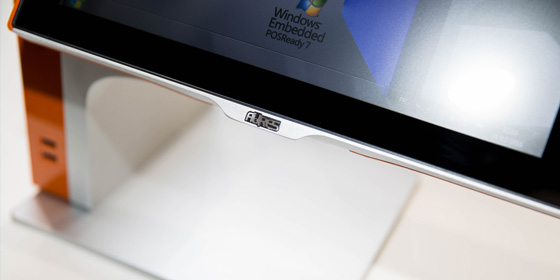By Jason SOUTHERN, AURES UK Channel Manager
Point of sale technology has been on a wonderful journey over the past couple of decades. From standalone tills that logged sales and very little else, to modern all-in-one touchscreen terminals. EPOS has evolved into a central hub of business IT systems, connecting sales, inventory, marketing and business intelligence amongst others, often across multiple locations.
Underpinning this development is something we perhaps don’t talk about often enough in relation to the role EPOS plays in modern retail, hospitality and leisure businesses. Without networking technology, EPOS wouldn’t be able to do half of the things we have come to expect of it.
More fundamentally, customer-facing businesses running a networked EPOS system depend on connectivity to trade. Like most contemporary IT assets, if your network goes down, your EPOS goes down. That means card readers won’t be able to authorise payments, your EPOS terminal won’t log sales, inventory records won’t be updated. You might just about be able to keep operating, but with huge disruptions to service and inconvenience to your customers.
Quality of network infrastructure is therefore fundamental to EPOS performance, which is why connectivity is something AURES takes very seriously. On hardware installations, we partner with ARC Services, a specialist in EPOS and IT installation, maintenance and support. One of its main areas of expertise is network infrastructure, providing consultancy and testing services as well as supplying and installing network cabling along with Wi-Fi hardware.
Keeping you connected, end-to-end
Christian IRWIN, Customer Relationship Director at ARC Services, explained some of the common issues they come across when asked to assess networking capabilities ahead of an EPOS installation. “We regularly see what we call ‘daisy chaining’, where businesses keep adding more and more endpoints to a single network point. This is because, if you want to add more terminals, it is a lot quicker and easier just to add more switches to an existing network point, rather than install a new one and run more network cabling.
“But this just creates bottlenecks in the system. The more endpoints you run through a single network point, the more likely you are to get slowdowns in performance. And if there is a problem, suddenly you bring five, six tills down in one go.
“Another one we come across is very untidy, disorganised communications cabinets, with lots of old redundant patch leads everywhere and nothing labelled clearly. If there is a network problem, this makes it much more difficult to identify the source of the issue, and just adds to downtime.”
ARC is brought in by AURES UK to assess network needs ahead of a new EPOS installation and make recommendations based on present capabilities. “We carry out extensive network tests, test access points, look for cabling issues etc. We then advise on what could be done to upgrade the network to optimise EPOS performance. This might be replacing or installing new components, redesigning the network architecture, looking at network security and so on.
“We also provide maintenance and aftercare support to fix network issues if and when they arise – although our aim is to get the original set up right so call outs are kept to a minimum and we can help maximise uptime.”




